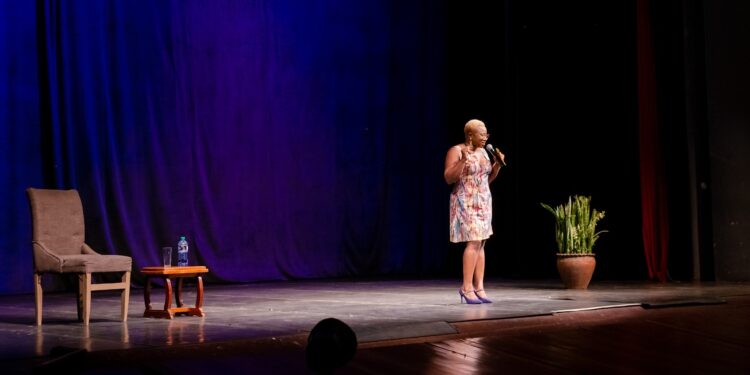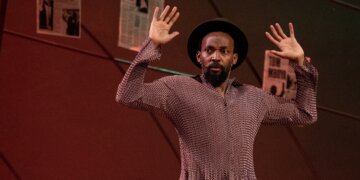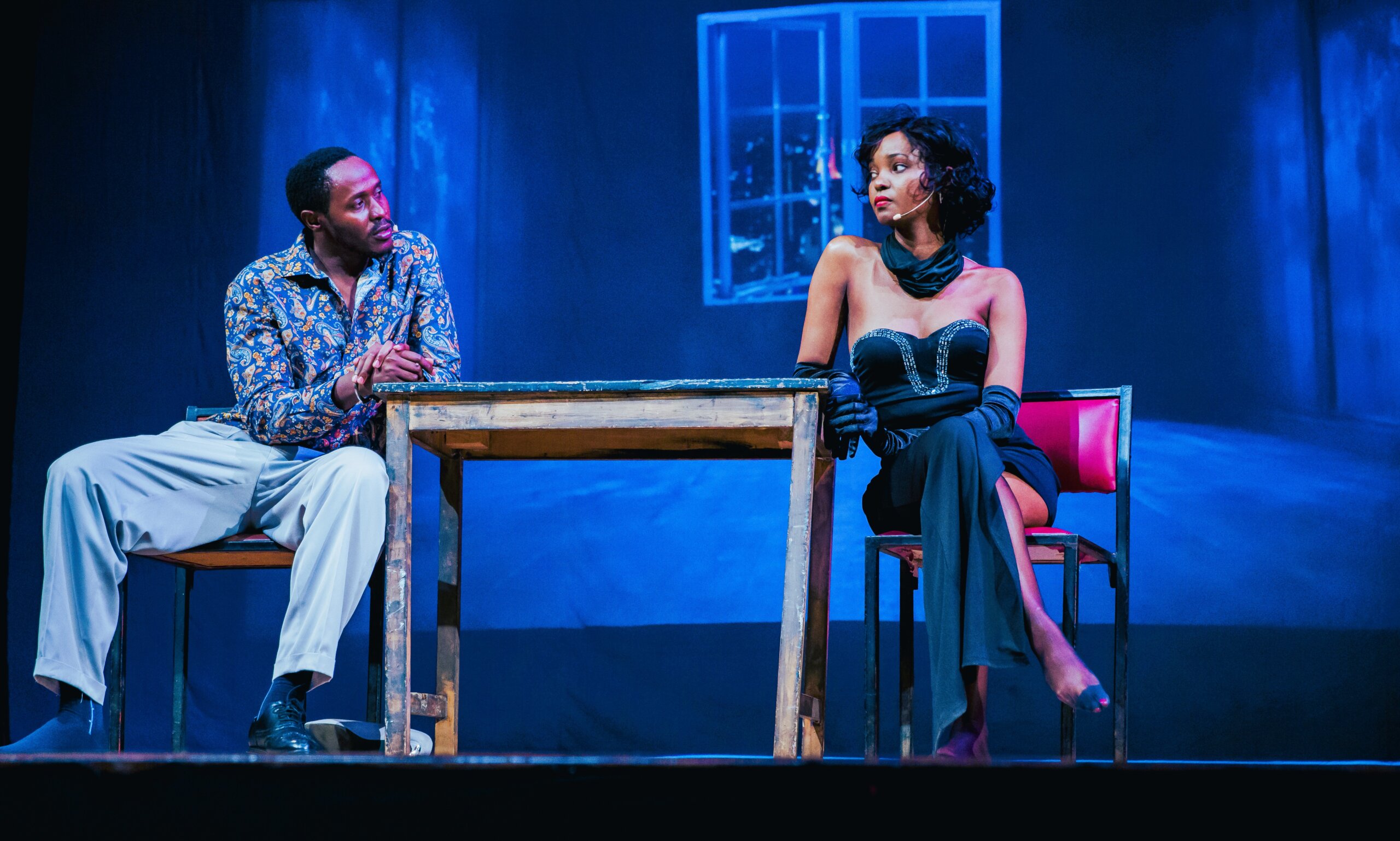How do you deal with grief if the person who has always grieved with you is the one you are supposed to mourn? This is the biggest and the hardest question that Dr. Zippy Okoth presented to her audience in her one-woman show Mama’s Mirror. With Mama’s Mirror, staged in the last week of March, Zippy unpacks the nostalgic and passionate relationship that she had with her dear mother, from childhood to her late thirties, before her death.
She takes her audience on a journey, unraveling interesting bits and pieces about her life growing partly in the small town of Homa Bay under the nurturing care of her mother, and coming to the city, forging a successful career in the arts and education sectors and finally, taking the huge blow of losing her mother.
Mama’s Mirror is Zippy’s one-woman show after her successful Side Chic Wife in September 2022. This show brings a new taste, tackling the very heavy topic of losing a mother in the most unexpected way and time.
Zippy weaves through a tapestry of different emotions, some are hilarious, others call for a moment of silence, as she unpacks an intimate relationship she had with her mother, beginning in childhood until the onset of her middle life. She shares the tale of a mother who was sweet at the right time and sour whenever she believed it was necessary. A mother whose business acumen at a time when there were little to no women entrepreneurs in Kenya enabled her to successfully build a business empire.
Just when you’re beginning to think that Mama’s Mirror is strictly a story about a mother-daughter relationship, Zippy throws in a curveball when she also opens up about her relationship with her, especially in her adolescent years when she found it easier to approach her him more than her mother. Because, as expected, all African mums stay very watchful and strict towards their daughters at puberty, as they believe that if they relent, the child will be spoilt – the euphemism for getting pregnant or eloping with a man before the “right time”.
Zippy also shares her experience as a 7-year-old girl going to a boarding school in Migori County and meeting her high school “mum”, a mentor-turned-monster who mostly bullied her for bed-wetting, except one particular day when the bully turned into an ally and helped her draft a letter to her mother asking her to come to pick up her daughter after she got critically ill.
For me, this one-woman performance is a catapult into retrospection, taking me back to my childhood days and the relationship with my mother. As Zippy goes on and on about the beautiful moments they shared and the tough times when her mother helped her deal with the loss of her firstborn child, and the tough choice of divorcing her husband, I can’t stop thinking about my mother. How has my relationship been with my mother? Do I care enough? Do we talk enough? Am I aware enough of her love and concern for me?
Mama’s Mirror also highlights our connection with the spirit world as Africans, and Zippy illustrates this by mentioning the moments when she has had conversations with her mum and the things they talked about turned out to be true. Indeed, death from an African perspective is just a transition into the other world, and we are still and will always be connected, us in the physical world, and our departed loved ones in the metaphysical.
Enjoyed this article?
To receive the latest updates from Sinema Focus directly to your inbox, subscribe now.











